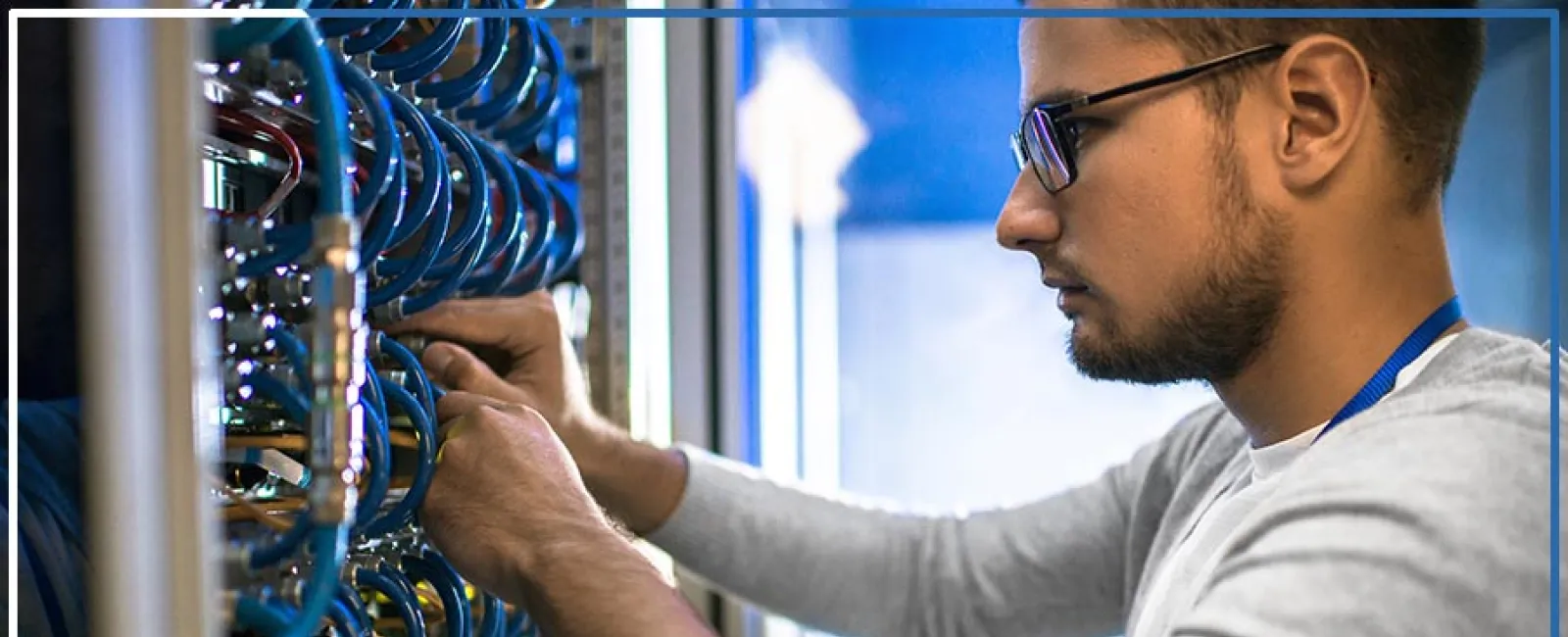Network cabling is an integral part of keeping a network up and running. Without network cables, network hardware has no way to communicate with each other. Cables are used for network data transmission and reception, and the connection of network interface cards (NICs) to computers. Network cables are typically made from copper or fiber optic cabling and can be used for either short-distance data transfers or long-distance telecommunication links.
However, it's not just about installing cables - you also need to know how to use them correctly. This blog post will cover the do's and don'ts when it comes to network cabling so your business remains online and doesn't experience any downtime.
Network Cabling Do's
- Keep network cables out of the way or bundle them with Velcro straps when they are not in use to prevent accidents like tripping over cords, pets chewing on wires, and accidental yanks that could destroy your network cabling.
- Use network cable testers to find network cabling faults and other potential problems before they turn into a network failure.
- Keep the network cables away from any potential sources of interference. This means that you should keep your network cables away from electrical wiring or other electrical devices that can cause magnetic interference.
- Do label network cable runs and network cabling equipment such as computers with the same number system to enable easy identification if there is an issue.
- Do color-code network cables to make it easier to identify network cable runs and network cabling equipment.
- Keep the network cables away from water sources, such as sinks, toilets, or showers.
- When network cables are not in use, you should store them away properly to prevent damage. Store network cables in a cool place away from direct sunlight.
- Always use network cable protectors to prevent them from being exposed and creating tangles when you store them.
Network Cabling Don'ts
- Do not lay network cables on the floor. They should always be kept in tidy bundles so that they do not get tangled when installing them or moving them around your office space.
- Do not run network cabling across doorways, walkways, hallways, or other paths where people are walking unless it is a last resort.
- Do not use network cables that are too long. Network cabling should be no more than 25 feet in length to prevent unwanted signal interference and network drops from occurring.
- Do not use network cables with faulty insulation or those exposed to water, oil, gasoline, animal fats, or other potentially corrosive substances. A damaged network cable can lead to a short circuit and the emission of toxic fumes.
- Do not plug network cables into power sources or other network devices until all the network cabling has been laid out.
The last thing you want is to have your network go down. Whether it's a power surge, equipment failure, or simply time for an upgrade, SureLock Technologies in Lawrenceville, GA, has the expertise and experience to get your business back up and running as quickly as possible.
Our IT technicians offer IT infrastructure maintenance, on-site tech support, on-site repairs and can handle any size job from small office installation services all the way through larger enterprise projects requiring hundreds of miles of cabling with no problem at all.
Get in touch today with one of our experts to get an estimate on our services!
